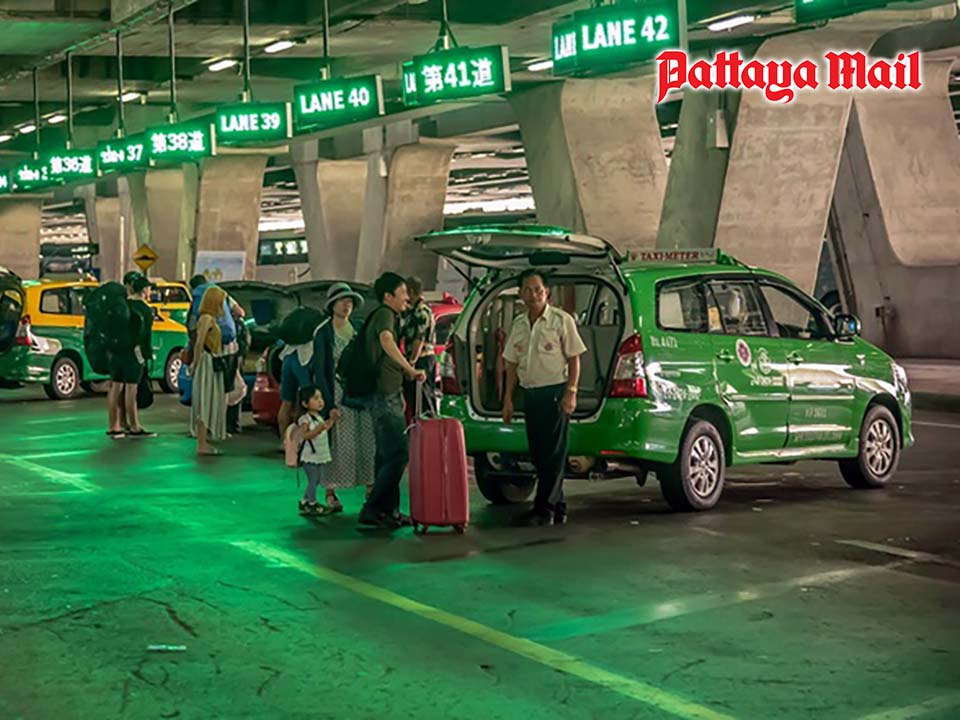Thai Taxi Drivers Left Behind – Researchers say laws favor foreign ride-hailing apps over local services
Researchers say poor enforcement of taxi service laws pushed consumers toward efficient ride-hailing apps.
PATTAYA, Thailand –Thai researchers have raised concerns over perceived injustices facing local taxi drivers, who say the government’s transport regulations unfairly benefit foreign ride-hailing platforms like Grab over traditional Thai taxi services. The issue has resurfaced following protests by the Association of Public Vehicle Drivers and Taxi Professionals, which submitted a formal statement to the Prime Minister and the Minister of Transport calling for urgent reform.
The group made two key demands:
Revoke the 2017 Ministerial Regulation on Passenger Vehicles with No More Than Seven Seats.
Amend the 2021 Ministerial Regulation on Ride-Hailing Services via Electronic Platforms.
Worapol Kamkhuntod, President of the Association, issued a bold statement urging the government to choose between “Grab or Thai taxis,” stating that favoring the former is akin to “selling out the country” to foreign interests. He argued that these policies disadvantage local workers while supporting foreign startups.
Assoc. Prof. Arknat Wantanasombut, head of the Inclusive Social Innovation and Economy Research Group at Chulalongkorn University’s Asian Studies Institute, remarked that this long-standing issue became more visible during the pandemic, when ride-hailing apps were legalized and gained traction. However, he also pointed out that poor service by some taxi drivers—such as fare overcharging and refusing passengers—has contributed to the public’s shift toward more efficient ride-hailing platforms.
Granting Grab access to Suvarnabhumi Airport sparks outrage among local taxi drivers over unfair competition.
He acknowledged, however, that enforcement of regulations against bad taxi behavior has been weak. Despite rules forbidding taxi drivers from rejecting passengers, these rules are rarely enforced, fueling consumer frustration. The reliability, price transparency, and efficiency offered by apps have made them the preferred choice for many.
Arknat criticized the recent decision to grant Grab official operating space at Suvarnabhumi Airport, saying it gives too much advantage to the app, while traditional taxis remain confined to designated queue areas, which further limits their competitiveness. He said this imbalance highlights how the government appears to favor foreign corporate interests over Thai livelihoods.
He noted that despite previous efforts like the government’s now-defunct TaxiOK app, there is currently no central platform to support traditional taxi services. This leaves taxi drivers without digital infrastructure or a clear pathway to compete. He added that governments, including Thailand’s, tend to focus on physical infrastructure (roads, electricity, water) but lack capability in managing digital infrastructure.
Citing international examples, Arknat mentioned how New York City taxi drivers formed a cooperative called “CO-OP Driver,” which launched its own ride-hailing app. Through this initiative, even if drivers don’t find passengers, they receive a minimum hourly wage of $30—above the standard minimum wage.
He believes this model could work in Thailand if local drivers united to create a shared app that they all co-own, making them less dependent on foreign platforms. He emphasized that while the government should still play a role—especially in ensuring equal service access and fare rates—the core of the solution lies in empowering taxi drivers to become competitive on their own.
New York’s taxi driver co-op cited as a model for Thai drivers to fight back with their own tech platform.



